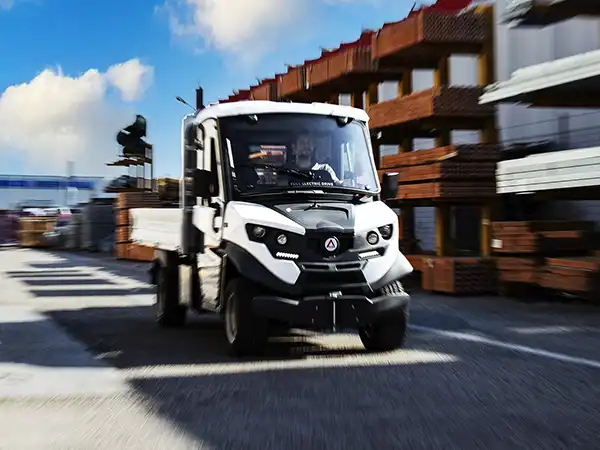When it comes to choosing a truck, one of the most significant decisions you’ll face is whether to opt for a diesel or gasoline engine. Both diesel and gasoline trucks have their own sets of advantages and disadvantages, making the choice largely dependent on your specific needs and driving habits. In this article, we’ll explore the pros and cons of diesel vs. gasoline trucks to help you make an informed decision.

- Performance and Power
One of the primary factors that differentiate diesel trucks from gasoline trucks is their performance, particularly in terms of power and torque.
Diesel Trucks:
- Pros: Diesel engines are renowned for their high torque output, which makes them ideal for towing and hauling heavy loads. This torque is available at lower RPMs, providing more power when you need it most, such as when towing a trailer up a steep hill.
- Cons: While diesel engines excel in torque, they often lag behind gasoline engines in terms of horsepower. This can result in slower acceleration and less responsiveness, especially in non-towing situations.
Gasoline Trucks:
- Pros: Gasoline engines typically offer higher horsepower than diesel engines, which translates to quicker acceleration and a more responsive driving experience. This makes gasoline trucks more suitable for everyday driving where quick acceleration is desired.
- Cons: Gasoline engines generally produce less torque than diesel engines, making them less capable when it comes to towing and hauling heavy loads.
- Fuel Efficiency and Cost
Fuel efficiency is another crucial consideration when choosing between a diesel and gasoline truck, as it directly impacts your long-term operating costs.
Diesel Trucks:
- Pros: Diesel engines are typically more fuel-efficient than gasoline engines, especially when driving on the highway. This means you’ll spend less on fuel over the long term, particularly if you do a lot of long-distance driving.
- Cons: Diesel fuel is often more expensive than gasoline, which can offset some of the savings from better fuel efficiency. Additionally, diesel engines can be more expensive to maintain due to the cost of diesel-specific parts and services.
Gasoline Trucks:
- Pros: Gasoline is generally cheaper than diesel fuel, which can make gasoline trucks more economical in terms of fuel costs, especially for city driving where fuel efficiency differences are less pronounced.
- Cons: Gasoline engines are typically less fuel-efficient than diesel engines, meaning you’ll need to refuel more often, especially on long trips.
- Longevity and Maintenance
The longevity and maintenance requirements of a truck can significantly affect its overall value and cost of ownership.
Diesel Trucks:
- Pros: Diesel engines are known for their durability and long lifespan. They are built to withstand the rigors of heavy-duty use, making them an excellent choice for those who plan to use their truck for towing, hauling, or other demanding tasks.
- Cons: While diesel engines are durable, they require more specialized maintenance, which can be more expensive and less convenient than maintaining a gasoline engine. Diesel engines also need to be run regularly to avoid issues with fuel gelling in cold weather.
Gasoline Trucks:
- Pros: Gasoline engines are generally easier and cheaper to maintain. Parts and service are more widely available, and gasoline engines are less sensitive to the cold, making them more reliable in winter months.
- Cons: Gasoline engines typically don’t last as long as diesel engines, especially under heavy use. This means you may need to replace or rebuild a gasoline engine sooner than a diesel one, which can be costly.
- Environmental Impact
Environmental considerations are increasingly important for many truck buyers, and the type of engine you choose can have a significant impact on your carbon footprint.
Diesel Trucks:
- Pros: Modern diesel engines are more fuel-efficient and produce less CO2 per gallon of fuel burned than gasoline engines, which can make them a greener choice in terms of CO2 emissions.
- Cons: However, diesel engines produce higher levels of nitrogen oxides (NOx) and particulate matter, which contribute to air pollution and are harmful to human health. This has led to stricter emissions regulations for diesel engines, increasing their complexity and cost.
Gasoline Trucks:
- Pros: Gasoline engines produce less NOx and particulate matter than diesel engines, making them less harmful to air quality in urban areas.
- Cons: However, gasoline engines are less fuel-efficient and produce more CO2 per gallon of fuel burned, which contributes to global warming.
Conclusion
Choosing between a diesel and gasoline truck ultimately depends on your specific needs and preferences. Diesel trucks offer superior torque, better fuel efficiency, and longer engine life, making them ideal for heavy-duty tasks like towing and long-distance driving. On the other hand, gasoline trucks provide better acceleration, are cheaper to maintain, and have a less complicated emissions profile. By weighing the pros and cons of each option, you can select the truck that best suits your lifestyle and driving requirements.

